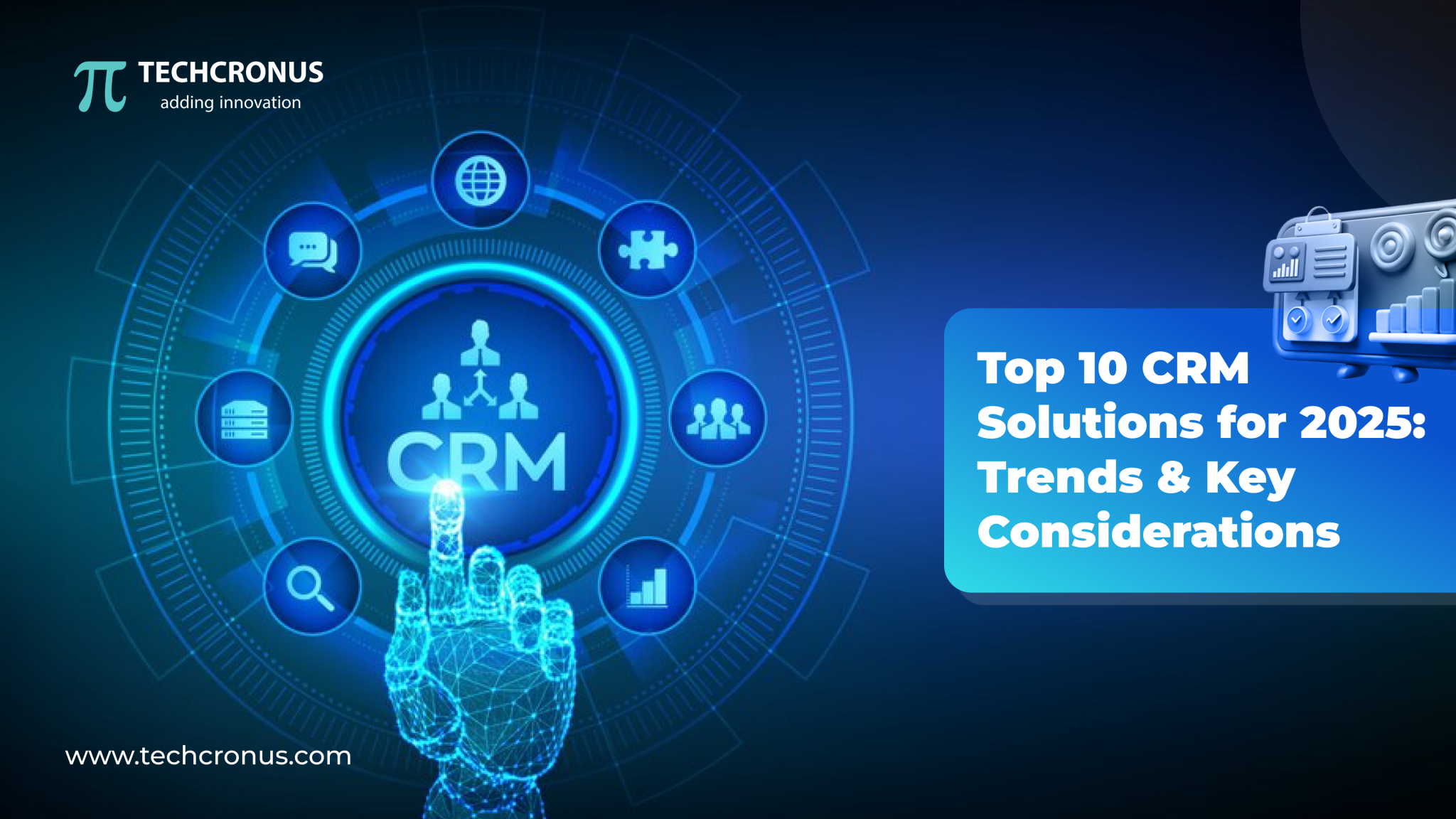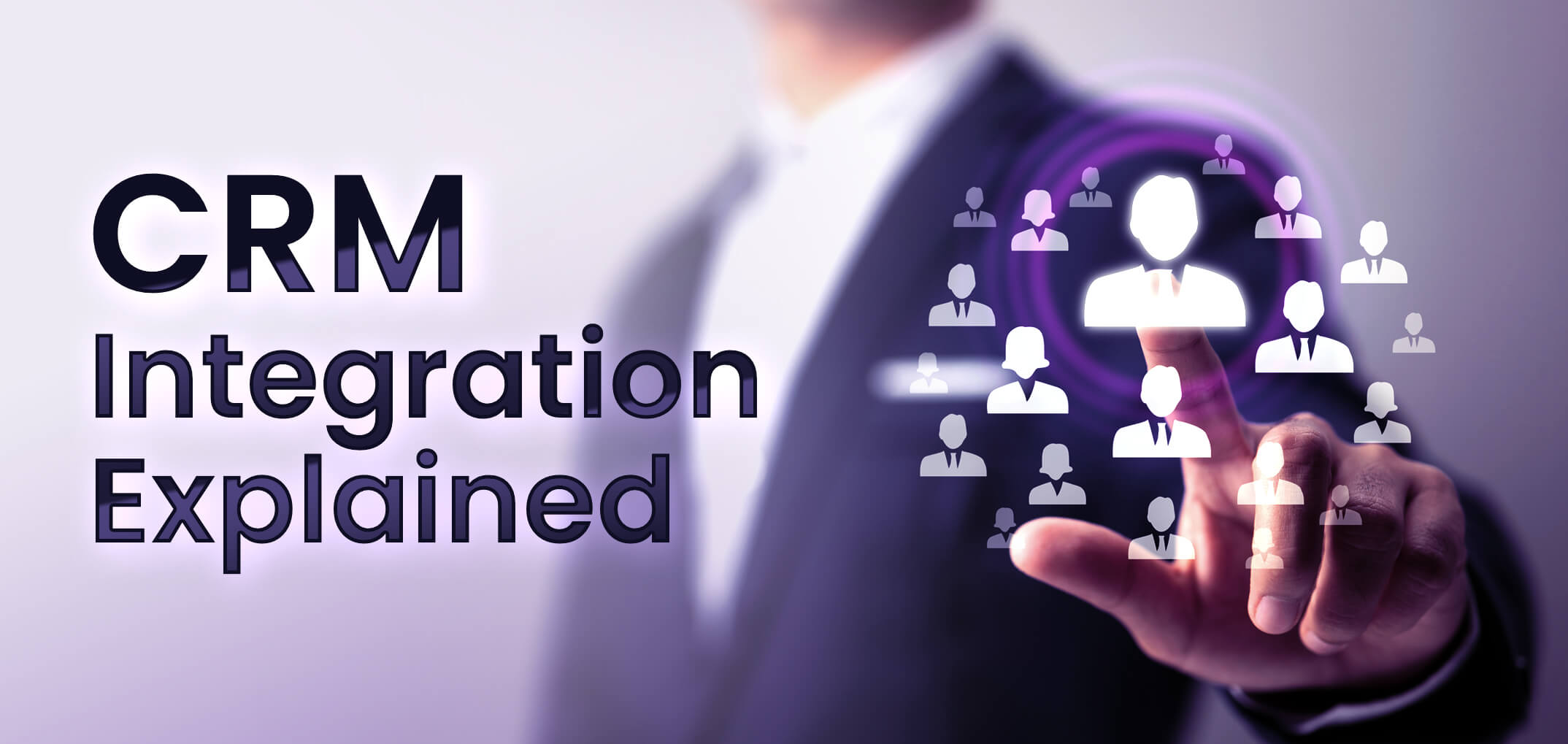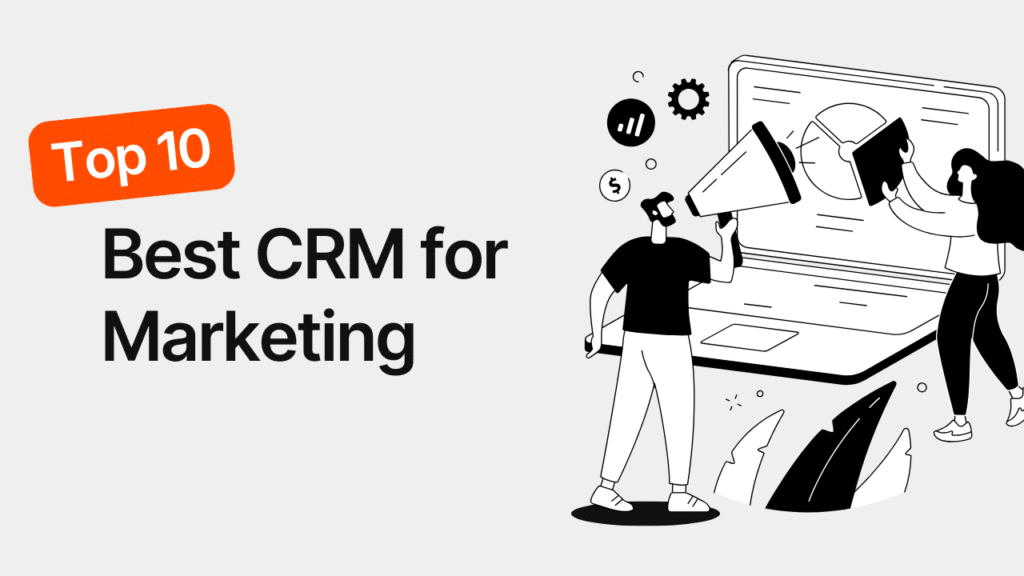Small Business CRM Updates: What to Expect and Prepare for in 2025

Small Business CRM Updates: Navigating the Future in 2025
The world of Customer Relationship Management (CRM) is constantly evolving, and for small businesses, staying ahead of the curve is crucial. As we approach 2025, the landscape is poised for significant shifts, driven by technological advancements, changing customer expectations, and the ever-increasing need for efficiency. This article provides a comprehensive overview of the expected CRM updates for small businesses in 2025, helping you prepare for the future and make informed decisions about your CRM strategy.
The Growing Importance of CRM for Small Businesses
Before diving into the specifics of 2025 updates, it’s important to understand why CRM is so vital for small businesses. In today’s competitive market, customer relationships are the lifeblood of any successful venture. A robust CRM system empowers small businesses to:
- Enhance Customer Relationships: By centralizing customer data, businesses can personalize interactions and build stronger relationships.
- Improve Sales Efficiency: CRM automates tasks, streamlines workflows, and provides sales teams with valuable insights, leading to increased productivity.
- Boost Marketing Effectiveness: CRM enables targeted marketing campaigns, allowing businesses to reach the right customers with the right message at the right time.
- Make Data-Driven Decisions: With detailed analytics and reporting, CRM helps businesses understand customer behavior, identify trends, and make informed decisions.
- Increase Profitability: By optimizing sales, marketing, and customer service efforts, CRM can significantly improve profitability.
In short, a well-implemented CRM system is no longer a luxury but a necessity for small businesses aiming to thrive in the coming years. Failing to adapt to these changes can be detrimental to your business’s long-term success.
Key Trends Shaping CRM in 2025
Several key trends are expected to shape the CRM landscape in 2025. Understanding these trends is essential for small businesses looking to stay competitive:
1. Artificial Intelligence (AI) and Machine Learning (ML) Integration
AI and ML are already transforming the CRM world, and their impact will only deepen by 2025. Expect to see more sophisticated AI-powered features, including:
- Predictive Analytics: AI will analyze customer data to predict future behavior, such as purchase patterns, churn risk, and customer lifetime value. This enables businesses to proactively address customer needs and tailor their strategies accordingly.
- Automated Chatbots and Virtual Assistants: AI-powered chatbots will become even more advanced, handling more complex customer inquiries and providing personalized support. Virtual assistants will automate routine tasks, freeing up human agents to focus on more strategic activities.
- Personalized Recommendations: AI will analyze customer preferences and behavior to provide personalized product recommendations, content suggestions, and marketing messages, enhancing the customer experience.
- Sales Automation: AI will automate more aspects of the sales process, such as lead scoring, lead routing, and email marketing, improving sales efficiency and conversion rates.
Small businesses should be prepared to embrace AI-powered CRM solutions to gain a competitive edge. The benefits of AI integration are numerous, from improved customer satisfaction to increased sales revenue.
2. Enhanced Mobile CRM Capabilities
With the increasing reliance on mobile devices, mobile CRM capabilities will become even more crucial in 2025. Expect to see:
- More User-Friendly Mobile Apps: CRM vendors will focus on creating intuitive and user-friendly mobile apps that provide a seamless experience for sales and customer service teams on the go.
- Offline Access: Mobile apps will offer enhanced offline access to data, allowing users to work even without an internet connection. This is particularly important for sales teams who spend a lot of time in the field.
- Integration with Wearable Devices: CRM systems may begin to integrate with wearable devices, such as smartwatches, to provide real-time updates and notifications.
- Location-Based Services: Mobile CRM will leverage location-based services to provide sales teams with relevant information about nearby customers and prospects.
Mobile CRM empowers businesses to stay connected with customers and manage their relationships anytime, anywhere. Small businesses must prioritize mobile-friendly CRM solutions to support their mobile workforce.
3. Increased Focus on Data Privacy and Security
Data privacy and security will remain paramount concerns in 2025. With increasing regulations and growing customer awareness, CRM vendors will need to prioritize:
- Robust Security Measures: CRM systems will need to implement robust security measures, such as encryption, multi-factor authentication, and regular security audits, to protect customer data from cyber threats.
- Compliance with Data Privacy Regulations: CRM vendors will need to ensure their systems comply with data privacy regulations, such as GDPR and CCPA, and provide tools to help businesses manage data privacy compliance.
- Transparency and Consent Management: Businesses will need to be transparent about how they collect and use customer data and provide customers with control over their data through consent management tools.
- Data Governance: CRM systems will offer enhanced data governance features, allowing businesses to manage data quality, access, and retention policies effectively.
Small businesses need to choose CRM vendors that prioritize data privacy and security and provide the necessary tools to comply with regulations. Protecting customer data is not just a legal requirement but also a crucial factor in building trust and maintaining customer loyalty.
4. Integration with Other Business Systems
In 2025, seamless integration between CRM and other business systems will be essential. Expect to see:
- Deeper Integration with Marketing Automation Platforms: CRM will integrate seamlessly with marketing automation platforms, enabling businesses to create more personalized and effective marketing campaigns.
- Integration with E-commerce Platforms: CRM will integrate with e-commerce platforms, providing a unified view of customer data and enabling businesses to personalize the online shopping experience.
- Integration with Accounting Software: CRM will integrate with accounting software, streamlining financial processes and providing a comprehensive view of customer profitability.
- Integration with Communication Tools: CRM will integrate with communication tools, such as email, phone, and video conferencing, to provide a centralized platform for all customer interactions.
Integration with other business systems streamlines workflows, eliminates data silos, and provides a more holistic view of customer interactions. Small businesses should choose CRM solutions that offer robust integration capabilities.
5. Emphasis on User Experience (UX) and User Interface (UI)
The user experience will continue to be a critical factor in CRM adoption and usage. Expect to see:
- Intuitive and User-Friendly Interfaces: CRM vendors will focus on creating intuitive and user-friendly interfaces that are easy to navigate and use.
- Personalization Options: CRM systems will offer more personalization options, allowing users to customize the interface to their specific needs and preferences.
- Gamification: CRM vendors might incorporate gamification elements to motivate users and improve engagement.
- Improved Reporting and Analytics: CRM systems will provide enhanced reporting and analytics capabilities, making it easier for users to gain insights from customer data.
A positive user experience is crucial for CRM adoption and productivity. Small businesses should prioritize CRM solutions with intuitive interfaces and a focus on user-friendliness.
Specific CRM Features to Watch for in 2025
Beyond the broader trends, certain CRM features will become increasingly important for small businesses in 2025:
1. Advanced Automation Capabilities
Automation will be a key focus, with CRM systems offering more sophisticated automation capabilities for various tasks, including:
- Lead Scoring and Routing: Automated lead scoring will prioritize leads based on their likelihood to convert, and automated routing will assign leads to the appropriate sales representatives.
- Email Marketing Automation: CRM will provide advanced email marketing automation features, such as triggered emails, personalized email sequences, and A/B testing.
- Workflow Automation: CRM will automate more complex workflows, such as customer onboarding, support ticket management, and order processing.
- Task Automation: CRM will automate repetitive tasks, such as data entry and follow-up reminders, freeing up employees to focus on more strategic activities.
Automation is crucial for improving efficiency, reducing errors, and freeing up employees to focus on higher-value tasks. Small businesses should look for CRM systems with robust automation capabilities.
2. Enhanced Reporting and Analytics
Data-driven decision-making will be more important than ever in 2025. Expect to see:
- Real-time Dashboards: CRM systems will provide real-time dashboards that offer a comprehensive view of key performance indicators (KPIs) and customer data.
- Advanced Analytics: CRM will provide advanced analytics capabilities, such as predictive analytics, churn analysis, and customer segmentation.
- Customizable Reports: CRM systems will offer customizable reports that allow businesses to track the metrics that are most important to them.
- Integration with Business Intelligence (BI) Tools: CRM will integrate with business intelligence (BI) tools, providing access to more advanced data analysis capabilities.
Enhanced reporting and analytics empower businesses to make data-driven decisions, identify trends, and optimize their performance. Small businesses should choose CRM systems with robust reporting and analytics capabilities.
3. Improved Collaboration Features
Collaboration will become even more important as businesses increasingly rely on remote teams and cross-functional collaboration. Expect to see:
- Integrated Communication Tools: CRM will integrate with communication tools, such as chat, video conferencing, and screen sharing, enabling seamless communication and collaboration.
- Shared Workspaces: CRM will provide shared workspaces where teams can collaborate on projects, share documents, and track progress.
- Activity Tracking: CRM will track all customer interactions, providing a complete history of customer interactions and enabling better collaboration.
- Role-Based Access Control: CRM will offer role-based access control, ensuring that employees have access only to the information they need.
Improved collaboration features enhance teamwork, improve communication, and streamline workflows. Small businesses should choose CRM systems with robust collaboration features.
4. Increased Personalization Capabilities
Personalization will be key to creating positive customer experiences. Expect to see:
- Personalized Content: CRM will enable businesses to personalize website content, email marketing messages, and product recommendations based on customer data.
- Dynamic Segmentation: CRM will provide dynamic segmentation capabilities, allowing businesses to create customer segments based on real-time data.
- Behavioral Targeting: CRM will enable businesses to target customers based on their online behavior, such as website visits, product views, and purchase history.
- Customizable Workflows: CRM will allow businesses to create customizable workflows that are tailored to the specific needs of individual customers.
Personalization enhances customer experiences and builds stronger customer relationships. Small businesses should choose CRM systems with robust personalization capabilities.
5. Advanced Security and Compliance Features
With increasing data privacy regulations, CRM systems must prioritize security and compliance. Expect to see:
- Data Encryption: CRM systems will encrypt customer data both in transit and at rest to protect it from unauthorized access.
- Multi-Factor Authentication: CRM systems will require multi-factor authentication to verify user identities and prevent unauthorized access.
- Regular Security Audits: CRM vendors will conduct regular security audits to identify and address any vulnerabilities.
- Compliance with Data Privacy Regulations: CRM systems will comply with data privacy regulations, such as GDPR and CCPA.
Security and compliance are critical for protecting customer data and maintaining customer trust. Small businesses should choose CRM systems that prioritize security and compliance.
Preparing Your Small Business for CRM Updates in 2025
Preparing for the 2025 CRM updates requires a proactive approach. Here are some steps small businesses can take:
1. Assess Your Current CRM Needs
Before making any changes, assess your current CRM needs and identify areas for improvement. Consider the following questions:
- What are your current CRM goals?
- What are your current CRM challenges?
- What features are you currently using?
- What features are you not using?
- What are your customer relationship management needs?
By understanding your current needs, you can identify the features and capabilities that are most important to your business.
2. Research and Evaluate CRM Vendors
Research and evaluate CRM vendors to find the best solution for your business. Consider the following factors:
- Features and Functionality: Does the CRM system offer the features and functionality you need?
- Ease of Use: Is the CRM system easy to use and navigate?
- Integration Capabilities: Does the CRM system integrate with your existing business systems?
- Pricing: Is the CRM system affordable for your budget?
- Customer Support: Does the CRM vendor offer good customer support?
- Security and Compliance: Does the CRM system prioritize security and compliance?
Take the time to research different vendors and compare their offerings. Request demos and trials to get a feel for the system before making a decision.
3. Plan for Implementation and Training
Plan for the implementation and training of your new CRM system. Consider the following steps:
- Develop an implementation plan: Outline the steps involved in implementing the CRM system, including data migration, system configuration, and user training.
- Train your employees: Provide comprehensive training to your employees on how to use the new CRM system.
- Provide ongoing support: Offer ongoing support to your employees to help them troubleshoot issues and get the most out of the CRM system.
Proper implementation and training are crucial for ensuring the successful adoption of your new CRM system.
4. Stay Informed About Industry Trends
Stay informed about industry trends and updates. Follow industry blogs, attend webinars, and read industry publications to stay up-to-date on the latest developments in CRM. This will help you anticipate future changes and make informed decisions about your CRM strategy.
5. Prioritize Data Migration and Management
Data migration and management is a critical step in transitioning to a new CRM. Ensure you have a solid plan for migrating your existing data, cleaning it, and maintaining its accuracy. Poor data quality can undermine the effectiveness of your CRM, so this is a step that needs careful attention.
6. Embrace a Customer-Centric Approach
The ultimate goal of any CRM system is to improve customer relationships. In 2025, this will involve going above and beyond. Collect customer feedback, personalize interactions, and strive to provide exceptional service at every touchpoint. Your CRM should be a tool that facilitates this customer-centric approach.
The Future is Now: Embrace the Changes
The CRM landscape is rapidly evolving, and small businesses must be prepared to adapt. By understanding the key trends, preparing your team, and selecting the right CRM solution, you can position your business for success in 2025 and beyond. The time to act is now. Embrace the changes, invest in the right tools, and prioritize customer relationships. Your future depends on it.
By understanding the trends and taking proactive steps, small businesses can leverage the power of CRM to enhance customer relationships, improve sales, and achieve their business goals. The future of CRM is exciting, and those who embrace the changes will be best positioned for success.




